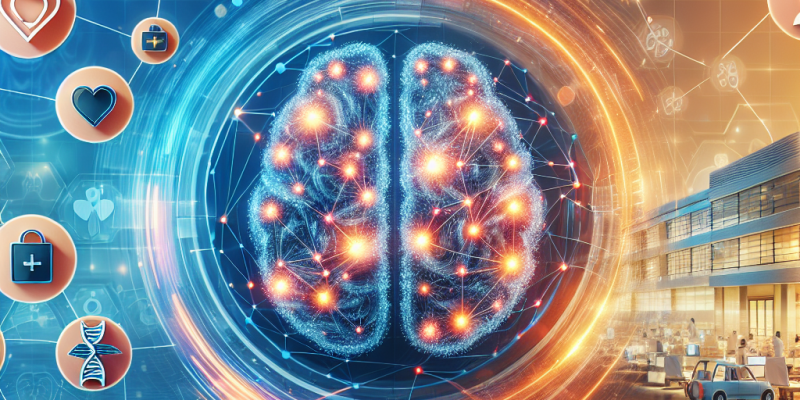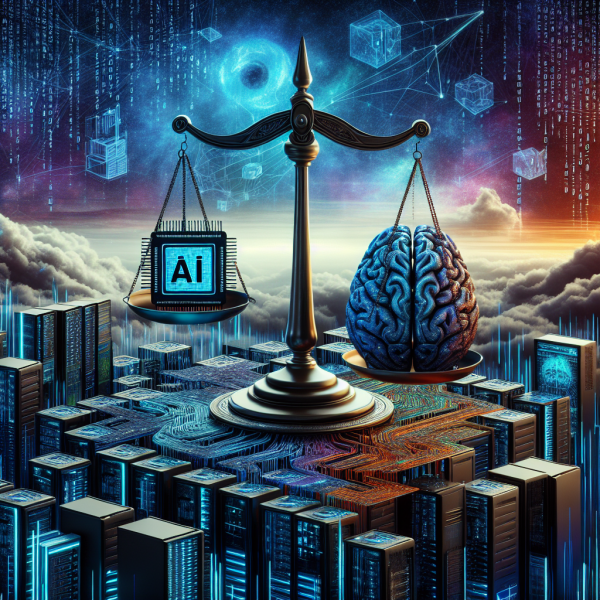Generative AI Models: Transforming Healthcare with Innovative Solutions

The rapid advancement of technology has catalyzed a transformative wave across various industries, and healthcare is no exception. Among the most groundbreaking developments in recent years are generative AI models, which leverage machine learning and artificial intelligence to create new content, analyze vast datasets, and enhance decision-making processes. These innovative solutions are redefining how we approach patient care, diagnosis, research, and operational efficiency in healthcare settings.
Understanding Generative AI Models
Generative AI refers to algorithms that can generate new content from existing data. They operate by learning patterns and structures within the data and then using this knowledge to produce original outputs. Notably, models such as OpenAI’s GPT (Generative Pre-trained Transformer), DALL-E, and variational autoencoders have demonstrated remarkable capabilities in various fields, including text generation, image synthesis, and even drug discovery.
In healthcare, generative AI models have found a plethora of applications that are revolutionizing the industry.
Enhancing Medical Imaging
One of the most influential applications of generative AI in healthcare is the enhancement of medical imaging techniques. Traditional diagnostic processes, such as X-rays, MRIs, and CT scans, often require high levels of interpretative skill and time. Generative AI models can augment the quality of these images, making it easier for radiologists to spot anomalies. By generating high-resolution images from lower-quality ones, these models help improve diagnostic accuracy and speed, ultimately leading to better patient outcomes.
Furthermore, AI-driven image generation can assist in training medical professionals by creating realistic synthetic images that mimic various conditions, providing better educational tools for students and practitioners alike.
Drug Discovery and Development
The pharmaceutical industry is notoriously complex and time-consuming, often taking over a decade and billions of dollars to bring a new drug to market. Generative AI is accelerating this process by predicting molecular structures and optimizing compounds for desired properties. By generating and screening thousands of potential drug candidates rapidly, these models can significantly reduce the time required for initial discovery phases.
Moreover, generative AI can help identify novel antimicrobial agents, predict toxic effects, and even simulate clinical trials, making drug development more efficient and less risky.
Personalized Medicine
Generative AI models can also play a critical role in the growing field of personalized medicine. By analyzing a patient’s genetic information, medical history, and lifestyle factors, these models can generate tailored treatment plans that maximize effectiveness and minimize adverse reactions. This results in more precise interventions that address the unique needs of every patient, paving the way for improved therapeutic outcomes.
Additionally, generative AI can assist healthcare providers in identifying at-risk populations, allowing for preventative measures that can significantly enhance public health and resource allocation.
Streamlining Administrative Processes
In addition to clinical applications, generative AI models are transforming administrative functions within healthcare organizations. Billing, patient scheduling, and data management are areas where AI can deliver substantial benefits. Natural language processing (NLP) algorithms can analyze and generate reports from unstructured data, such as clinical notes, freeing up healthcare professionals to focus more on direct patient care.
Furthermore, generative AI can enhance patient engagement by creating personalized communication strategies, automating follow-ups, and providing educational materials tailored to individual patients’ needs.
Ethical Considerations and Challenges
Despite the promising applications of generative AI in healthcare, several ethical considerations and challenges must be addressed. Data security and patient privacy are paramount, as these models often require access to sensitive information. Ensuring compliance with regulations such as HIPAA in the U.S. is critical for maintaining trust.
Additionally, the issue of bias in AI-generated outputs must be carefully monitored. If the training data for AI models is unrepresentative, the generated solutions may perpetuate healthcare inequalities. Continuous efforts to create diverse datasets, coupled with rigorous validation processes, are essential to mitigating these risks.
The Future of Healthcare with Generative AI
As generative AI models continue to evolve, their impact on healthcare is expected to expand further. Innovations such as robotic surgery assisted by AI, AI-driven telehealth interventions, and enhanced predictive analytics for patient outcomes are on the horizon. The integration of AI with other emerging technologies like blockchain and the Internet of Things (IoT) promises to create an interconnected healthcare ecosystem that is more efficient, effective, and responsive to patient needs.
In summary, generative AI models are at the forefront of a revolution in healthcare, providing innovative solutions that enhance various aspects of the industry. As we navigate the challenges and ethical considerations, the potential to improve patient care, expedite drug development, and streamline operations makes generative AI a key player in the future of healthcare. The journey has only just begun, and the possibilities are boundless.














